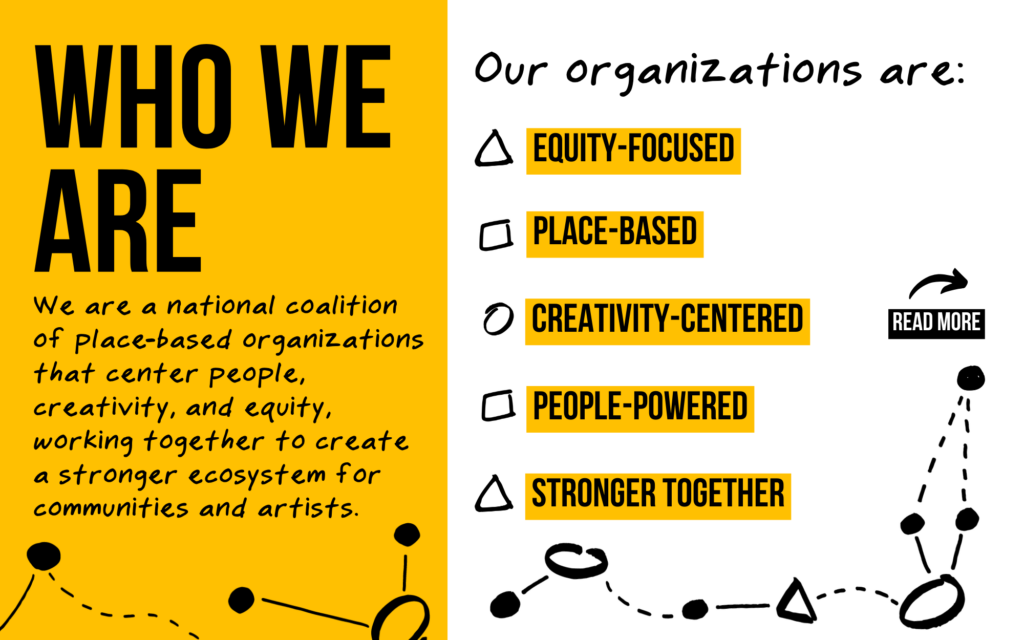Taking the Leap: Launching the Creative Change Coalition
We were so excited to launch the Creative Change Coalition on November 16th, 2023 with the first Community of Practice session, featuring a conversation between Laura Zabel, Executive Director of Springboard for the Arts, and special guests National Endowment for the Arts Chair, Maria Rosario Jackson, PhD and NEA Design & Creative Placemaking Director, Ben Stone.
Along with our presenting team, over 180 participants from 120 organizations and 34 states were in attendance, bringing curiosity, collaboration, and a desire for community and connection to the session.
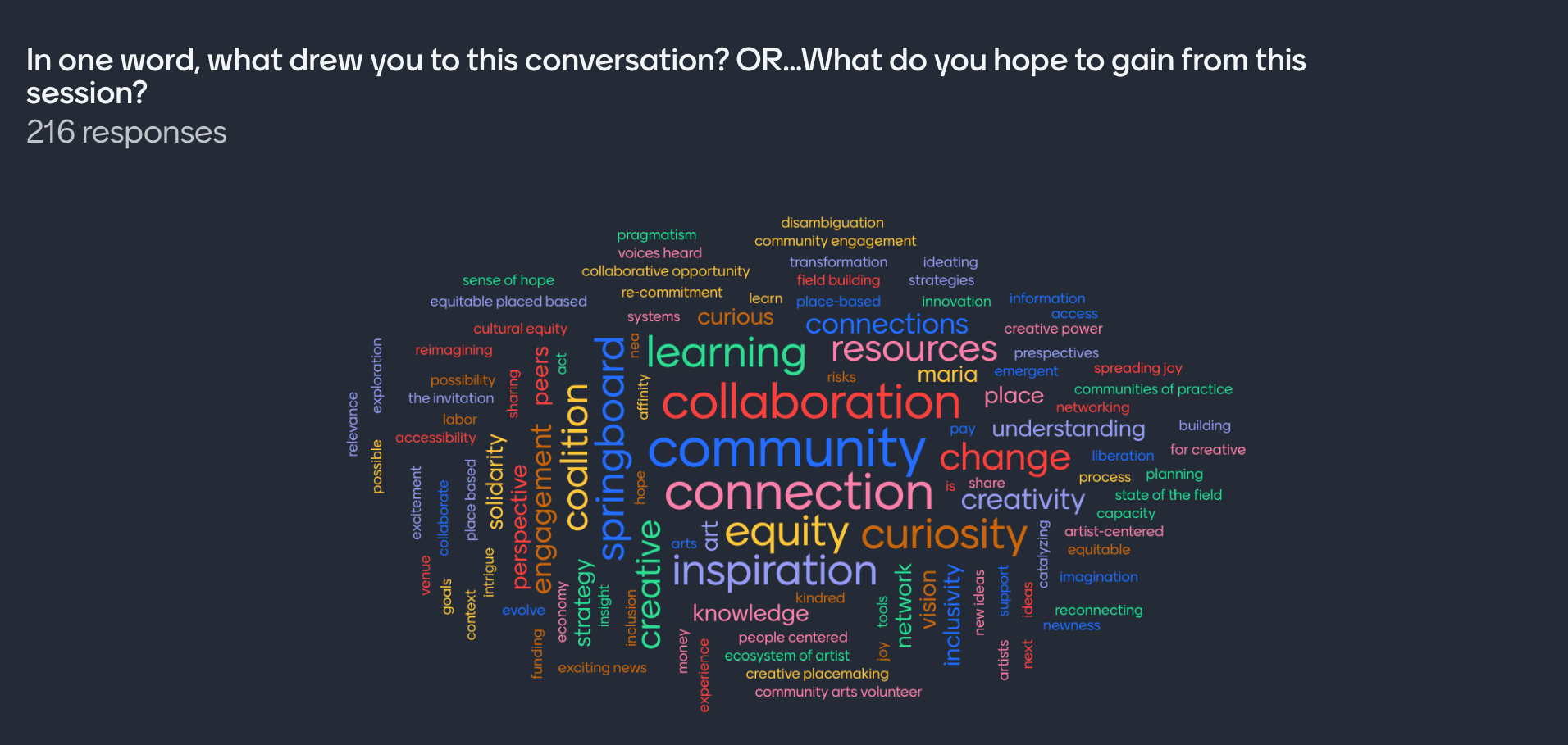 Image Description: Attendee polling results for the question, “In one word, what drew you to this conversation?”
Image Description: Attendee polling results for the question, “In one word, what drew you to this conversation?”
As we reflect on this initial convening, which will be one of many to come, this session brought up several themes related to the arc of the creative community development field, how field-specific language and processes have evolved, the importance of our ongoing relationships with one another, and the future of this work together. One of the goals of the Coalition is to create practical, “how-to” resources that are practitioner-led and practitioner-informed. As we build this road map together, here is what will be grounding our work:
Invite and resource those new to the work
While many people have been involved in conversations and field-building for decades, it’s important for this coalition and other networks to invite in and resource those who are new and in early stages of the work. This includes creating resources and tools that meet them where they are, while at the same time providing inclusive spaces for newcomers to share their own expertise and inform the work.
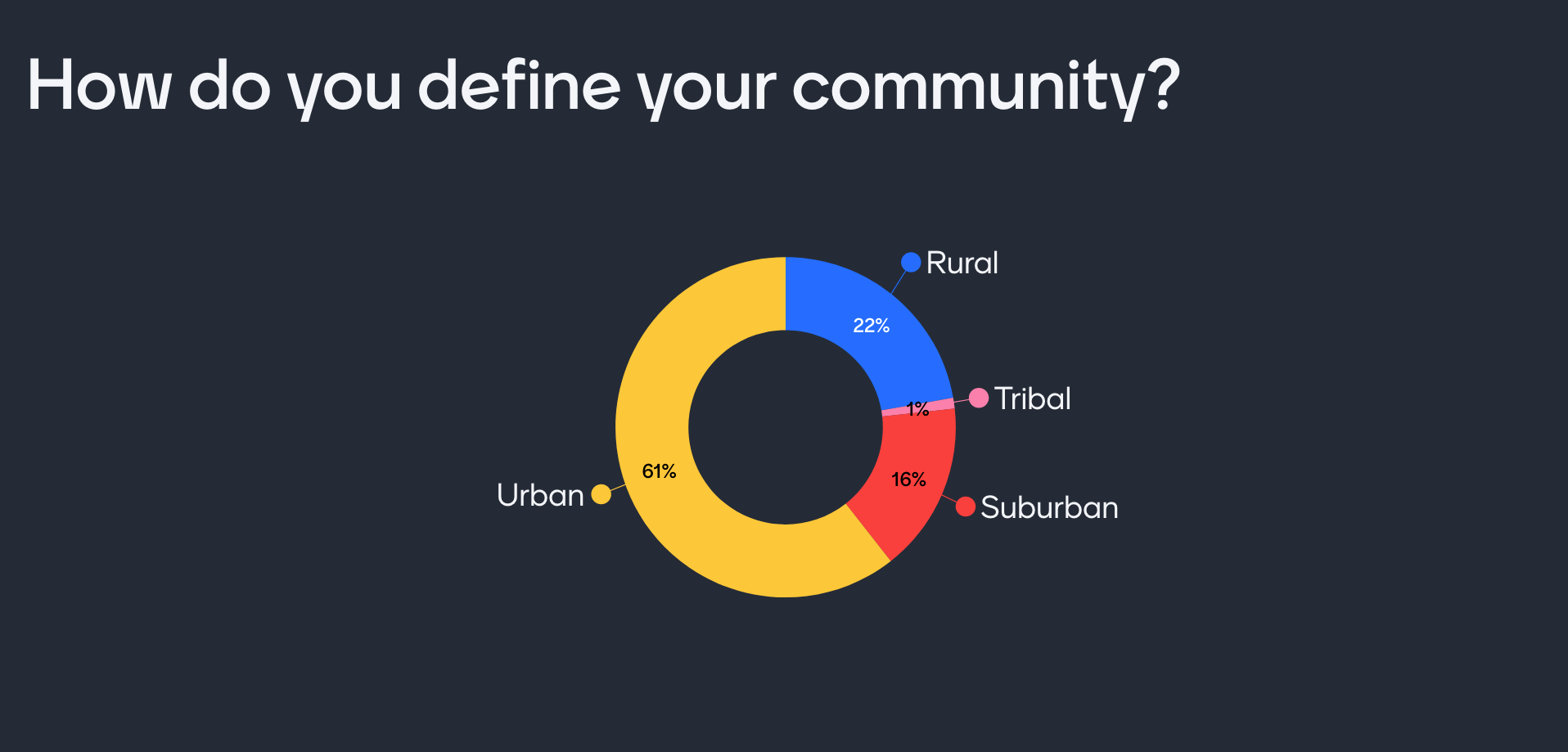
“The ability for people to make sense of the world, to own their own stories, and be creatively expressive on their own terms is a key element of justice. It’s a key element of equity and a healthy existence and I think it’s core to the American ethos that we profess.” – Dr. Maria Rosario Jackson, Chair, National Endowment for the Arts
Reinforce the value of the arts from a holistic perspective
As a field we need to reinforce the fact that “art is work,” and articulate more expansive definitions of the impact of the arts beyond economic development. Chair Jackson noted an exciting expansion of how the impact of the arts is being considered and included. Rather than just through the lens of economic impact within economic development, the arts are being included in considerations and designs around holistic ideas of wellness and health, including health of the planet, individuals, social fabrics, and our democracy.
Build infrastructure and relationships
Advancing the work of creative change requires us to consider the infrastructure needed, including the role of intermediaries to manage administrative and legal processes, that can move ideas forward fluidly. Additionally, relationships, both formal and informal, are critical to building power and agency for communities so that communities are leading the change that they want for their own places. In sharing his own observations of successful projects, Ben Stone encouraged us to build on our strengths and gather together the skills needed for a project to be successful: “Partnerships help people shine with the skills that they have.”
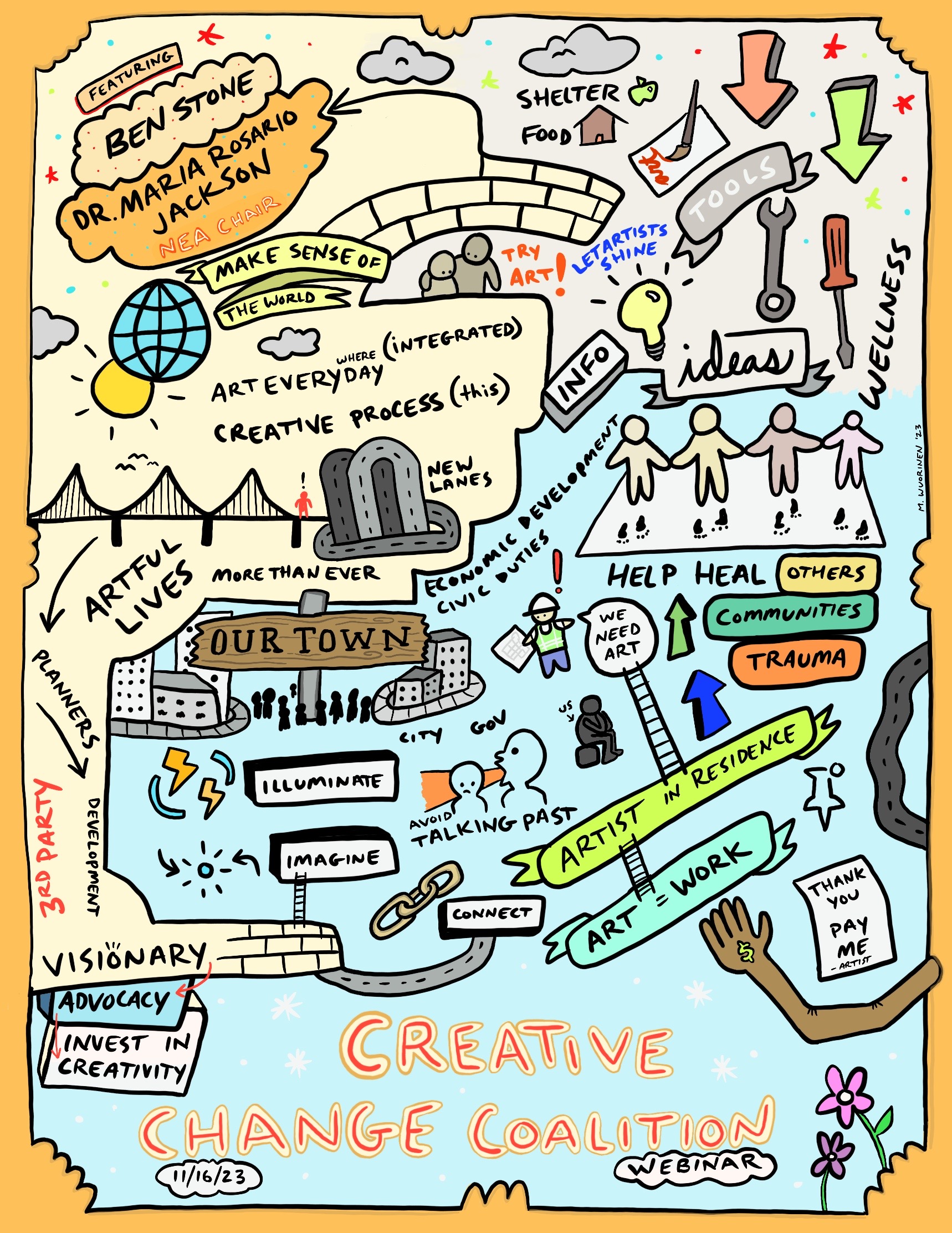
Recognize and learn from a variety of approaches
The work of creative change takes many forms, and there is no one way to achieve our collective goals. Chair Jackson expressed excitement and belief in a future where artists are employed to deliver their talent and skills in ways that we haven’t yet imagined. This is the challenge and the beauty of the work, and why it’s so critical to connect regularly with other practitioners to share and be inspired by all that is possible.
Build a future of solidarity
While this work is often under-recognized and under-resourced, when we connect and learn together, we build resilience, solidarity, and reciprocity. This Coalition has potential to not just strengthen our individual work on the ground level, but to create better collective conditions for artists to thrive and lead lasting community change. As Laura Zabel shared, “The Coalition’s long-term goal is to open up opportunities for us to work together on shared research and policy change agendas that support local work at regional and national levels. We know it will be shaped by the people who engage with it and we want it to be informed and useful to folks as we go.”
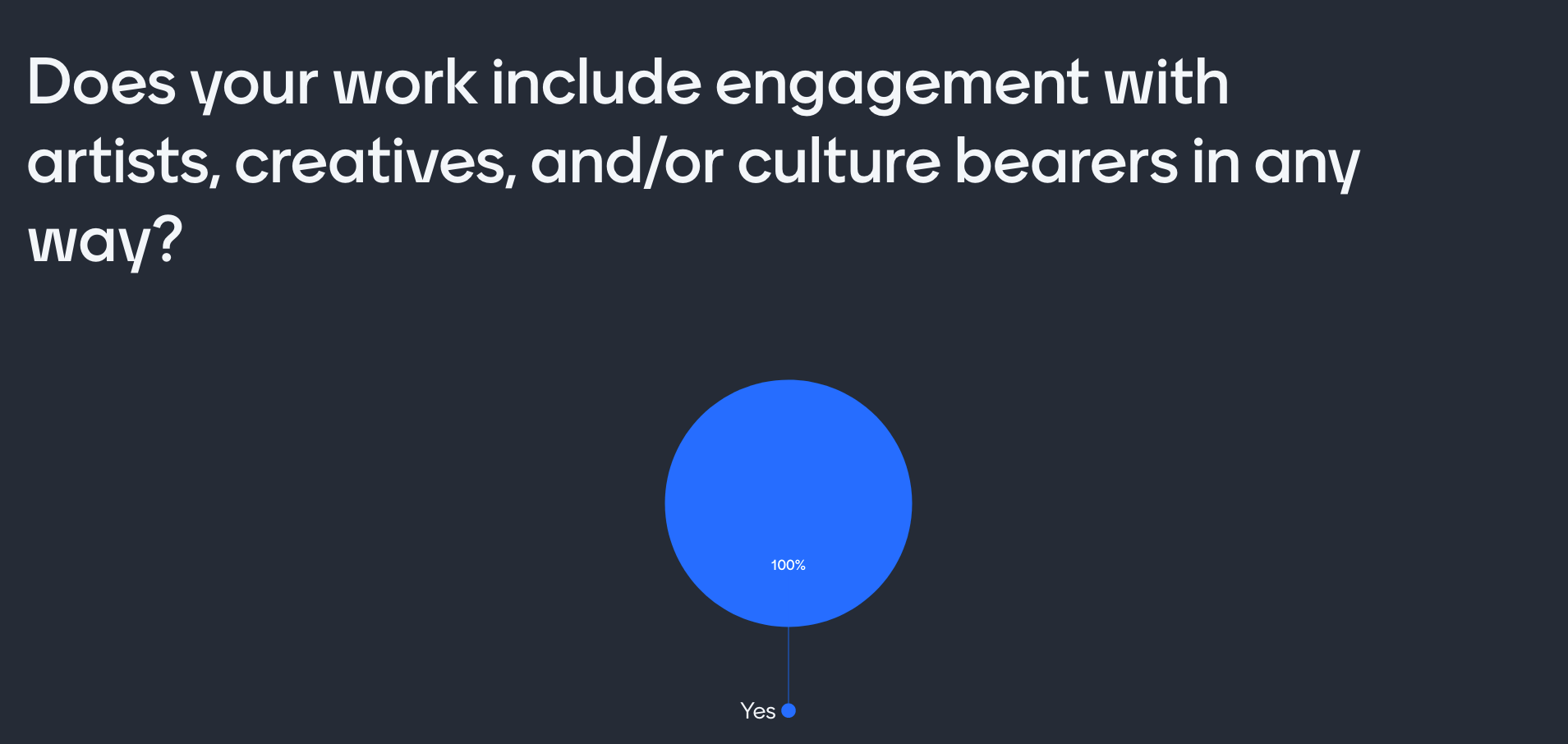
“Every day I’m more convinced that the work the world needs now is the work that happens inside our own neighborhoods and our own communities and generates our own creativity and builds our own collective cultures. Thank you for doing that work – because it matters a lot.” – Laura Zabel, Executive Director, Springboard for the Arts
To learn more about the Creative Change Coalition, visit www.creativechangecoalition.org.
Questions about the Coalition? Contact Sara Sawicki, National Program Manager, Springboard for the Arts at: sara@springboardforthearts.org
Press Inquiries: Contact Destiny Davison, Communications Director, Springboard for the Arts at: destiny@springboardforthearts.org
The Creative Change Coalition is stewarded by Springboard for the Arts with support from the Andrew W. Mellon Foundation and the National Endowment for the Arts.

